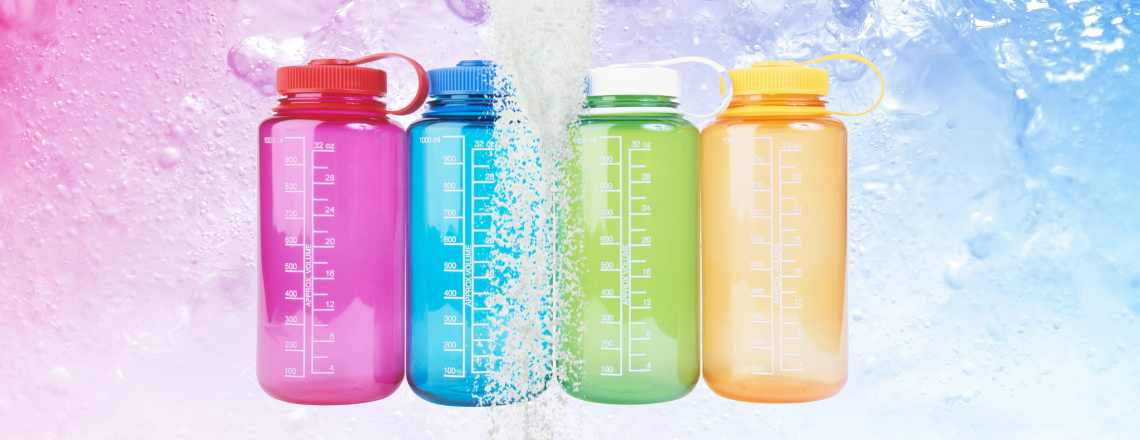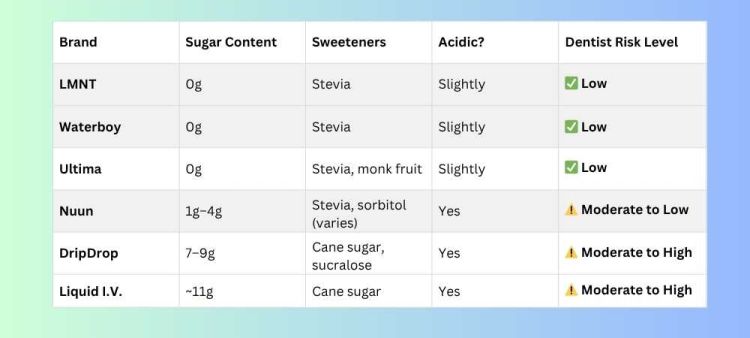
Are Electrolyte Powders Bad for Your Teeth?
A Dentist's Perspective on Popular Brands
By: General Dentist Paige Kitzing
Electrolyte powders have become a go-to solution for hydration, whether you're working out, recovering from illness, trying to stay energized throughout the day, or, let's face it, after a night out with too many cocktails. But while they help replenish vital minerals, many people don’t realize they may also be impacting their oral health.
So, are electrolyte powders harmful to your teeth? The short answer is: it depends on the brand and how you consume them.
Let’s explore the potential dental risks and how popular electrolyte brands stack up from a dentist’s perspective.
What Makes Electrolyte Powders a Risk to Oral Health?
From a dental standpoint, the two biggest concerns with electrolyte drinks are acidity and sugar content.
Acidity
Many electrolyte powders are flavored with citric acid or similar ingredients. While these give the drink a refreshing taste, they also lower its pH, making it acidic. Regular exposure to acidic drinks can:
- Erode tooth enamel
- Increase tooth sensitivity
- Make teeth more vulnerable to cavities
Sugar
Some electrolyte powders contain added sugars that feed the bacteria in your mouth. This leads to plaque buildup and acid production, both of which contribute to tooth decay. Drinking these throughout the day, especially when your mouth is dry (like during or after exercise), can make the problem worse.
How Popular Brands Compare
Here’s a breakdown of several popular electrolyte powders and how they measure up in terms of oral health:

Six Dentist-Recommended Tips for Safer Use of Electrolyte Powders
You don’t need to give up electrolyte powders altogether, especially if they help support your health. Instead, be smart about how and when you use them:
- Choose sugar-free options. Brands that have zero sugar are better choices for your teeth.
- Drink quickly, not slowly over time. Frequent sipping prolongs acid exposure on your enamel.
- Rinse with water afterward. This helps neutralize acids and wash away residue.
- Wait before brushing. Brushing right after drinking something acidic can spread the acid around your enamel. Wait at least 30 minutes.
- Use a straw. A straw helps minimize contact between the drink and your teeth.
- Avoid drinking them right before bed. Saliva production slows while you sleep, so sugar and acid can sit on your teeth longer.
The Bottom Line
Hydration is essential for your health—and that includes oral health. Electrolyte powders can be a helpful tool, but not all are equally tooth-friendly. Brands with high sugar and acidity can increase your risk for enamel erosion and cavities.
If you regularly use electrolyte powders, opt for sugar-free, low-acid formulas and follow smart dental habits to protect your smile. And when in doubt, ask your dentist for recommendations based on your specific needs.
Meet Dr. Paige Kitzing
Dr. Kitzing is a general dentist at Dental Associates Franklin.
Get to know her by visiting her profile page: General Dentist Paige Kitzing
More information about oral health from Dental Associates
5 Tips for Choosing Your Dentist
Will My Dental Procedure Be Painful?
7 Ways to Calm Dental Anxiety and Fear of the Dentist

